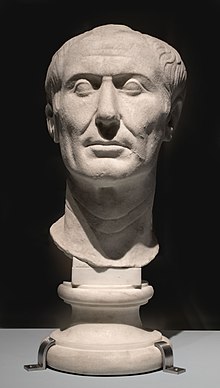In his piece "Crossroads" (popularized by the long gone band Cream), the legendary blues singer Robert Johnson paints a picture of a decision to be made, a barrier to be bridged or, to borrow from Caesar once again, a Rubicon to be crossed. Though the story is that the song describes a pact that Johnson supposedly made with the Devil, we cannot be sure.
The point is this: we all have our Ides of March, we all have our crossroads. We all face, whether we sense it beforehand or not, potentially transforming moments. How these moments will transform us we usually do not know. But we understand that each of our moments lingers on the cusp of change.
But why? We do so because we believe that the world has meaning. We believe that what we do matters. We believe that we are creatures of sense living in a sensory world. In a solely material world, a world absent of transcendent presence, however, we cannot legitimately claim that what we do matters. From what would meaning come?
Unless this world is personal, unless this world has an ultimate origin in what is not chemical, we cannot have an ides of March. Caesar--and all the rest of us--would not matter one whit.

No comments:
Post a Comment